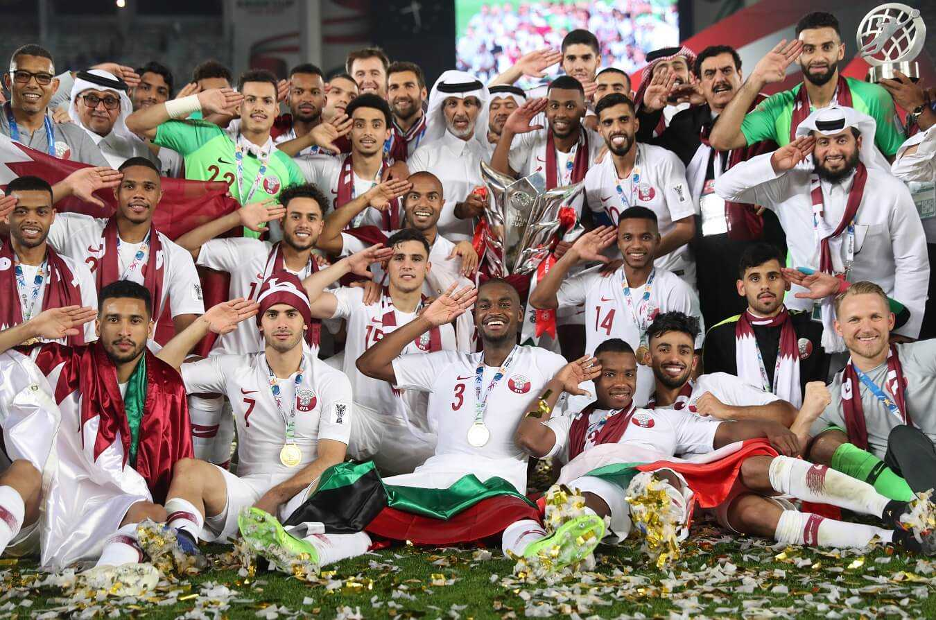Qatar and the Importance of Sports Documentation

Documenting sports is extremely important to impart knowledge and spark inspiration for sports development, a panel of writers said in a webinar held on Feb. 7.
Documenting Sports: A Reflection of Qatar’s History was organized by HBKU Press and moderated by Danyel Reiche, a visiting associate professor at Georgetown University in Qatar. The panel featured Matthias Krug, sports journalist and author of “Journeys on a Football Carpet;” Monika Staab, former manager of the Qatar National Women’s Football Team; and Nasser Al-Mohannadi, adjunct associate professor at TAMU-Q and author of “How to be an Ironman.”
During the discussion, Krug shared his experience of documenting Qatari football history and evolution and the country’s preparations for the FIFA World Cup 2022. “As a journalist growing up in Qatar and working for different outlets here, I was able to meet a lot of characters in my book and get first-hand interviews. I think that really brought history into life because memories make up the most interesting parts of history,” he said.
He also emphasized the importance of documenting sports history in the country. “There are a lot of unique and interesting aspects in every country’s sporting history that needs to be narrated and shown to the world,” said Krug.
Staab, in charge of the Qatari National Women’s Football Team from 2012 to 2015, added that sports records “can be used as references to enhance sports throughout the world.” Her book documents her experiences as a globetrotting coach.
“I learned a lot during my time in Doha. There are many female coaches in the Arab region who lack experience because of their history,” she said. “It was important to document the experiences that I had gained over 14 years as a coach in different countries and write a book for the females who are just starting out.”
“I’m so happy and delighted to hear about the first “C” license coaching course in Qatar,” she added. “We need the coaches to be active because parents are much happier when there is a female coach. A female coach understands female players, although football has the same aim.”
Staab also mentioned the impact sports have on overcoming gender inequalities. “When I was in Qatar, one person told me that women are like crystals because they are fragile, to imply that women cannot play football. My answer was that I’d been playing football for 50 years and I’d never been broken,” she said.
“Through publications, we can put it in the society that women’s football is okay and the girls who want to play can play it. All the parents who have prejudice about women or girls playing football can understand that you can overcome all the cultural barriers,” she explained.
Sporting skills “can be applied in practical life to think in a positive way to find solutions and always look forward to overcoming the challenges,” said Al-Mohannadi, who wrote his book, “How to be an Ironman,” after becoming one of the first Qataris ever to complete a full Ironman race; the triathlon consists of swimming and biking followed by a marathon.
“This kind of sport was not a part of the local culture, and now we can see it is growing. We can look at the benefits and change in mindset that sports like these have brought by documenting their history and evolution,” he said. “This is a major reason that books like these should be written to keep it as a legacy for the future generations.”
Al-Mohannadi added that documentation has the potential to inspire a community and build an image. “One effective way of sharing your learnings with a community is through a book. Everyone has an ironman within themselves that wants to get to the finish line. Documenting these stories to the larger community can inspire people to achieve their goals in other aspects of life.”
The panelists also discussed the positive impacts that Qatar’s efforts of researching and documenting its sporting history have brought. “Now that sports has put Qatar on the map, a lot of people receive the local narratives in a good way. There still are some negative perceptions, but it has changed how people thought about Qatar in a positive way,” said Al-Mohannadi.
Before concluding, Staab referred to a relevant event to shed light on sports documentation’s impact inside Qatar. “There are three female referees that have taken up the game at the ongoing FIFA Club World Cup, which is wonderful to show the society that there are women who can play and be a part of football,” she said.












